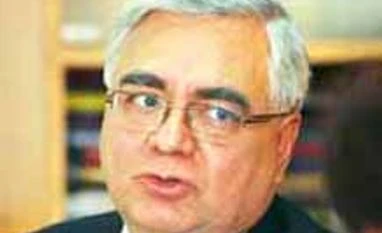"We need foreign capital and also to prohibit capital outflows. Thus, we need good rating from international rating agencies which always keep a close watch on the fiscal deficit of the country," Shome said at a seminar on Budget, 2013-14 jointly organised by St Xavier's College and MCC Chamber of Commerce here.
The key objective of the Budget has been to reduce fiscal deficit, which is urgently required, he said.
More From This Section
With the current account deficit (CAD) at high levels, the country needs to attract foreign capital, either through FDI or external commercial borrowings (ECB) route.
Raising hopes of a sovereign credit upgrade, global rating agency Moody's recently applauded Finance Minister P Chidambaram's Budget 2013-14 saying that it pursues realistic fiscal consolidation path and is 'credit positive'.
"India's budget pursues realistic fiscal consolidation, a credit positive for the sovereign," said Moody's in its credit outlook for the country after the Budget.
Chidambaram in his Budget for 2013-14 proposed to bring down the fiscal deficit to 4.8% of the Gross Domestic Product (GDP) from 5.2% in the revised estimates for the current financial year.
Earlier, ratings agencies like Standard and Poor's and Fitch had threated to downgrade India's sovereign credit rating to junk grade in view of the worsening fiscal position of the government. They also are likely to come out with fresh assessment in the backdrop of the Budget proposals.
Moody's had assigned BAA3 rating to India, which indicates investment grade rating with stable outlook.
Commenting on the direct tax proposals in the Budget, Shome said 10% surcharge imposed on those whose annual income was more than Rs 1 crore is a step in the right direction to address fiscal consolidation move.
The marginal rates of taxation on super high income brackets were higher in countries like Chile, China, UK, Germany and South Africa.
"There was room for increasing the tax rates for them. But it was kept at a lower level," he said.
Shome said the Budget has done well to increase the excise on SUVs. "This should have been done before."
Other countries tax large cars heavily, he said.
Shome said in the current fiscal tax revenue would grow by 17%, and 19% in the next financial year.
"International rating agencies are projecting a higher growth for India now. But we are cautious," he said.
)